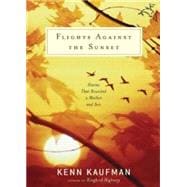
Note: Supplemental materials are not guaranteed with Rental or Used book purchases.
Purchase Benefits
What is included with this book?
| Acknowledgments | |
| Room 432 • 9:13 a.m. | p. 1 |
| The Ghost in the Station | p. 11 |
| Room 432 • 9:42 a.m. | p. 23 |
| Curlew After Curfew | p. 25 |
| Room 432 • 10:08 a.m. | p. 38 |
| Eagle Dreams | p. 41 |
| Room 432 • 10:25 a.m. | |
| 50 Your Eyes Are Like Limpid Pools, Whatever That Means | p. 53 |
| The Name of the Jar | p. 60 |
| Room 432 • 11:10 a.m. | p. 69 |
| A Pair of Spectacles | p. 74 |
| Room 432 • 11:48 a.m. | p. 83 |
| This Bird's for You | p. 90 |
| Supercool | p. 97 |
| Hell's Birders | p. 106 |
| Room 432 • 1:16 p.m. | p. 116 |
| The Birder Who Came In from the Cold | p. 121 |
| Parking Lot Birds | p. 132 |
| Room 432 • 2:05 p.m. | p. 141 |
| Freedom For Sale | p. 144 |
| Into Thin Air | p. 149 |
| Spring on the Central Highway | p. 158 |
| Room 432 • 2:57 p.m. | p. 164 |
| Nightland | p. 168 |
| Kokako Sunrise | p. 177 |
| Room 432 • 3:50 p.m. | p. 187 |
| Abundant Life 192 The Beach Is Bad | p. 200 |
| Room 432 • 4:30 p.m. | p. 209 |
| A Petrel from Mars | p. 212 |
| Room 432 • 4:59 p.m. | p. 222 |
| Table of Contents provided by Publisher. All Rights Reserved. |
The New copy of this book will include any supplemental materials advertised. Please check the title of the book to determine if it should include any access cards, study guides, lab manuals, CDs, etc.
The Used, Rental and eBook copies of this book are not guaranteed to include any supplemental materials. Typically, only the book itself is included. This is true even if the title states it includes any access cards, study guides, lab manuals, CDs, etc.